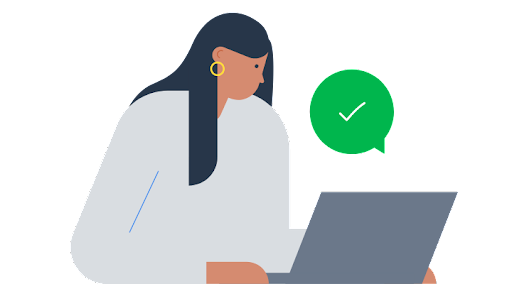Receiving a creepy message from an unknown caller who calls you is not something you should overlook. Stalkers and hackers use anonymous calls to creep their victims out before sabotaging their personal data. It’s important to take this seriously while taking the necessary steps to defend yourself from these unwelcome messages.
Not all creepy phone calls are harmful. But when it comes to your safety, you shouldn’t take any risks. Here are 5 steps you should take to safeguard yourself if you get these messages.
- Don’t Pick up the Phone
Receiving a call or messages from a number that looks familiar may seem harmless. In fact, you might assume that you overlooked adding the number to your contacts list and it could be someone important. In most situations, though, answering a call or message from an unidentified number is not the wisest choice. To start with, if someone is trying to figure out if the number belongs to you, hearing your voice or name will confirm their lead. And if you refuse to adhere to what they have to say they might sell your details to other people.
- Reverse Phone Lookup
Reverse phone lookup is a method of locating an unknown number in order to determine who or what business it is affiliated with. This is surprisingly simple to do these days, thanks to the internet.
Use Nuwber as a reverse search tool. It allows you to look up telephone numbers, names, and addresses. It scans a variety of databases for key information, including police and criminal records
If the number is associated with a person or business, it will show up in the Nuwber database. You can then decide whether to call back the number or block it.
- Do not give out any personal information over the phone
You’ve probably heard of phishing scams, where they use emails and online messages to trick people into disclosing their Social Security number, passcodes and financial details, but have you heard of pretexting? Pretexting is where hackers use misleading pretenses to obtain your personal information over the phone.
Pretexters collect information and sell it to other people and criminal organizations, who can use it to obtain your money, get credit in your name, sue you or even use your identification. Pretexters use a variety of methods to obtain your personal information, the most popular of which is a phone call. Typically, the pretexter appears to be from a well-known business or consultancy agency. He requests your name, address, date of birth and Social Security number. After accessing the information the imposter may contact your financial institution and use your information to gain access to your account, apply for credit cards under your name or use your information in a host of other ways.
Your Social Security number is the most important bit of information you should never give out on the phone. A criminal or unethical person who has your Social Security number may use it to apply for credit or contact your banking institution in order to obtain access to your accounts. Giving out your Social Security number on the phone puts you at risk of identity theft as well as credit card and bank account fraud. Never share your Social Security number on the phone in order to avoid losing money or damaging your credit rating.
- Report the suspicious phone call
Scam calls and messages can be reported in a variety of ways. Telephone scams can be reported online to the Federal Trade Commission, and caller ID spoofing can be reported to the Federal Communications Commission or you can contact them directly to file your report. If you haven’t already done so, register your phone number with the National Do Not Call Registry to avoid robocalls and telemarketing calls. The Do Not Call registry will not be enough to block all of the calls you get, but it is something you should do if you get a lot of unsolicited marketing calls. (bolingbrookmasjid.com)
- Use a blocker app
Some mobile phone providers have their own solutions for handling unauthorized calls, so consult with your cellular service provider to see what they can offer. If you are out of ideas or don’t think your carrier’s program or software is strong enough, there are many third-party robocall blocking tools to pick from.
The cost of a typical call blocker program isn’t high and many of them don’t take up a lot of storage space on your mobile; in fact, you might not even notice it running on your phone. Most of them will screen and prevent nuisance calls before your phone rings. However, many robocall blocking apps may share your number with analytics firms and share your details such as phone model to companies such as Facebook without your permission.
Mind you, not each robocall blocking app is like this though. Nevertheless, even though the one which you choose might not share and sell your data secretly, it most likely collects it. Most programs are based on a crowdsourced database of phone numbers to cross-check unidentified callers with already known suspects and those numbers come from your contact lists. It’s fair to say that when you use a third-party blocking tool, you’re disclosing sensitive information such as your password, IP address and the name, brand and operating system of your smartphone.
If you can close your eyes on the privacy concerns, downloading a third-party robocall blocking tool is one of the easiest and most dependable ways to keep telemarketers, robocallers, and even annoying election campaigns from calling you. However, do your homework and read the privacy policies first so you know for sure what you’re getting into.
There are several measures you should take to protect yourself from possible threat, identity fraud and/or monetary damages, whether you’re receiving weird texts from an anonymous number or getting bombarded with telemarketing calls. When you get one of these calls, you should ignore it and run the number through a search directory to learn more about the caller. If you do answer, make sure you do not give any personal details, no matter how genuine they seem to be.





